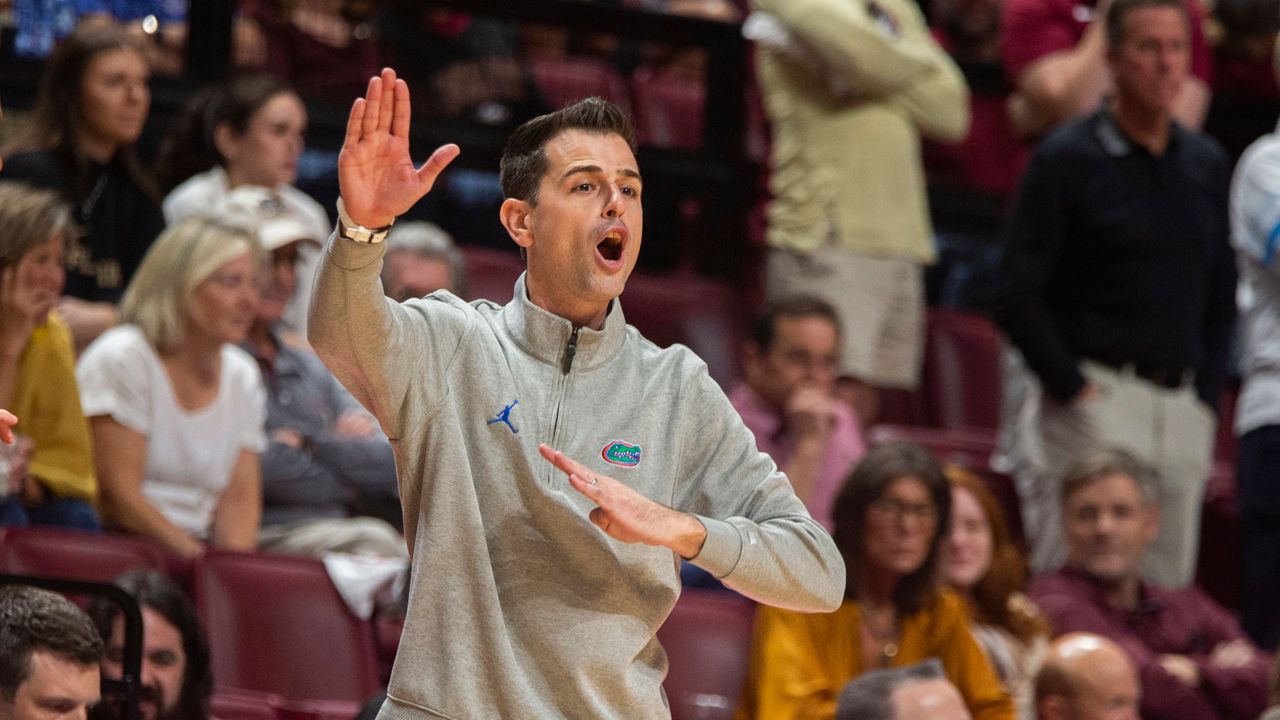CORNELIUS, N.C. — Two and a half million people live with a genetic disorder called neurofibromatosis, also referred to as NF.
- A Cornelius woman, McKinnon Galloway, is raising awareness about a genetic disorder called neurofibromatosis
- It causes tumors to grow along your nerves
- The Children’s Tumor Foundation says there’s currently no cure
The disease, which causes tumors to grow along your nerves, affects 1 in every 3,000 births, which is about 2.5 million people worldwide, according to the Children’s Tumor Foundation.
“Dependent on where they grow, people can have all kinds of problems such as hearing loss, vision loss, some of them can even turn into cancer,” said Annette Bakker, Children’s Tumor Foundation president. "Our patients have higher incidents of cancer."
There are three kinds of NF.
NF1, NF2 and schwannomatosis.
A Cornelius woman, McKinnon Galloway, has NF2, which the Children’s Tumor Foundation says is much less common than NF1, affecting about 1 in 25,000 people worldwide.
"So, I have five tumors. I have one on my spine, I have two in my hands and I still have two in my brain,” Galloway said.
Galloway has had several health complications over the last year as a result, including two brain surgeries.
“I went to my first surgery and I came out and my eyes went inward, I went deaf,” she said. “The surgery was unsuccessful, so they had to go into another brain surgery and that one they did get more of the tumor out, but I got complete facial paralysis on this side, it’s coming back."
But this Valentine’s Day, she’s filled with love and excitement for the future.
Galloway and her college sweetheart Brandon Kwiatek got engaged this past January.
“I was getting ready for a show and I come out of the bathroom and there’s all these rose petals all over the ground,” she said.
“He got on one knee and he asked my mom, he did the whole thing,” she added.
As they plan their wedding, they’ve had to learn a new way to communicate.
Because of NF2, Galloway lost her hearing and became deaf.
“So usually around 29 they lose their hearing, which I was 29 when I lost my hearing so they were pretty spot on about that,” she said.
Hearing loss is common for patients with NF.
"But the challenge is that once these patients undergo surgery, it’s all these nerves are very close to each other,” Bakker said. “It’s extremely difficult to do those surgeries. And very often when the tumor is removed and after that, patients lose their hearing. And sometimes you really have to remove them because these tumors can grow relatively big and really become dangerous, even life-threatening."
Learning a new way to say "I love you" isn’t easy.
The couple found an app that translates what Kwiatek is saying.
“It was definitely challenging at first, right. We had so much that we wanted to tell each other and we were struggling with it a little bit with on how to actually do it,” Kwiatek said. "We tried so many different things. We had like a little whiteboard, we had pen and paper. Luckily, this application does very, very well in quiet settings, but her lip reading is getting amazing, it’s actually impressive, it’s almost like a little super power.”
Galloway says she knew a little sign language, but she’s planning to take more classes.
"It can be very isolating for NF2 patients because they lose hearing later in life,” she said. “So they don’t have that deaf community they grew up with and so they don’t really know ASL, so we are kind of in between two worlds.”
"McKinnon’s mom described it to me,” Bakker said. "It is like walking in a train tunnel in the dark. You don’t know when the train is coming, but if it comes, it may hit you really hard. And that is in fact the anxiety our NF patients live in on a daily basis.”
According to the Children’s Tumor Foundation, there’s no approved cure for NF but there are many trials underway.
“But unfortunately research takes money, and so I think the biggest thing is donations, research, especially the Children’s Tumor Foundation because they fund a lot of research,” Galloway said.
Galloway hopes she can advocate for a cure and educate people about NF.
“I kind of got a taste of what some people go through their entire lives, so I think this is something that you know, is really important to talk about because it made me realize how truly we do need a cure for NF,” she said.
While there is no cure at this time, the Children’s Tumor Foundation says the FDA approved their first-ever treatment for NF in 2020.









